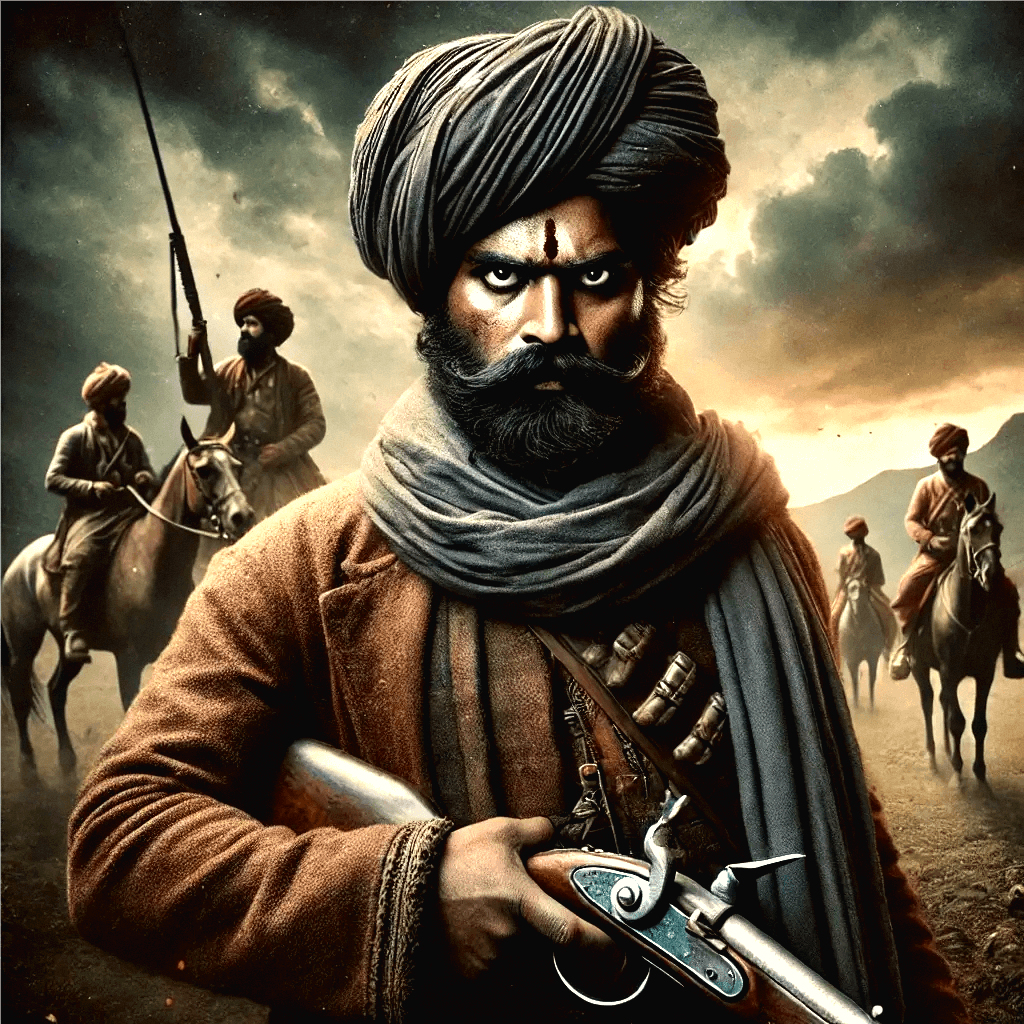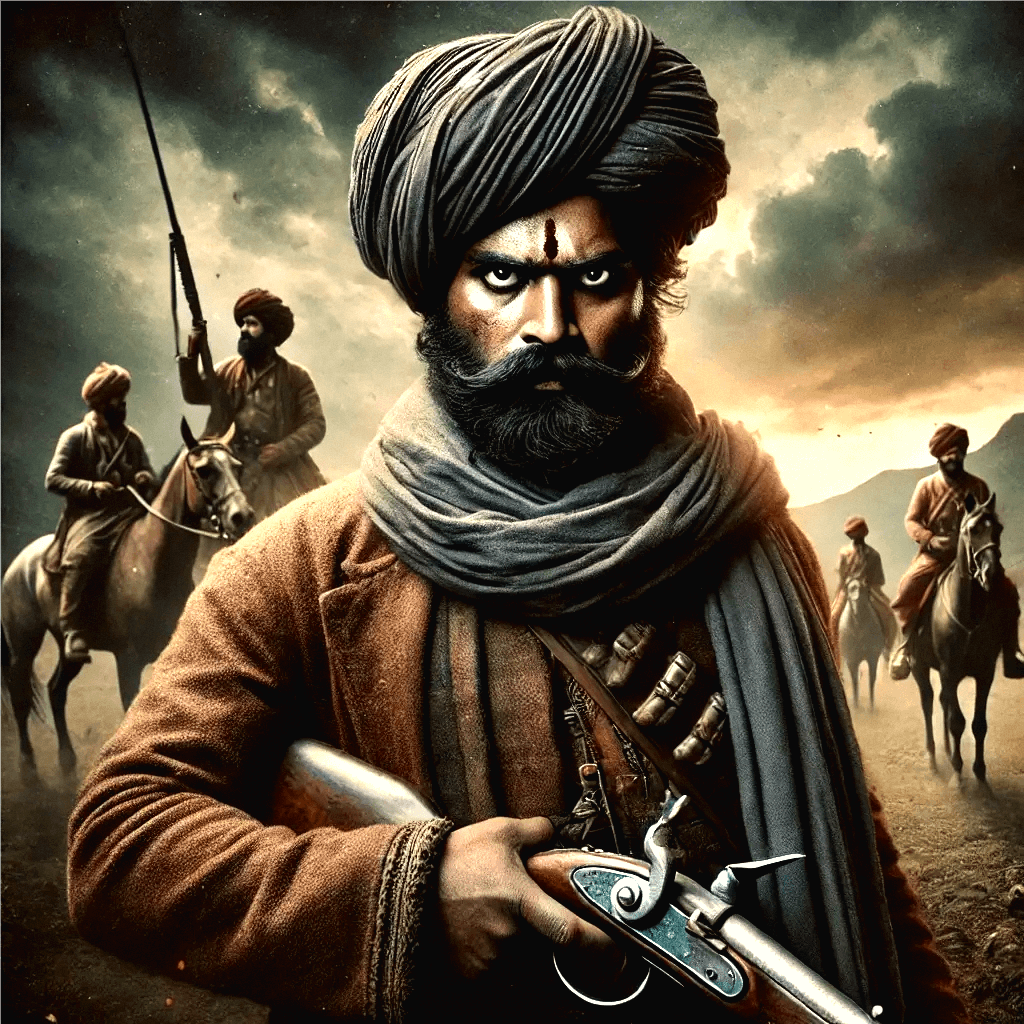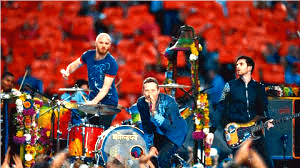Table of Contents
As per Indian folklore, “Daaku Maharaj” is a name most commonly associated with an infamous bandit. He is a figure whose acts of rebellion, excitement, and the eternal battle between good and evil are braided into that of the country’s. A “Daaku” is a term that is popularly related to a dacoit or a bandit, while ‘Maharaji’ is a term for a king or a noble. Together, these words form a picture of a many-sided individual, maybe a dacoit of royal lineage or a king who took the law into his own hands for justice. Thus, Daaku Maharaj is a person revered in the Indian epic not as an outlaw, but as one who embodies different virtues and vices.
The Origins of Daaku Maharaj
The history of Daaku Maharaj is quite intriguing. It can be traced back to the stories about the cruel dacoits that rampaged through the rural and semi-urban parts of India during the rule of the British colonial powers. In between the 18th and 19th centuries, dacoity, which is the act of tremendous robbery or banditry, was quite common in the northern and central regions of India. During this time, these dacoits would travel in packs, laying siege to unwary travelers, attacking rich merchants, and even getting in violent scuffles with the British imperial army or local kings.
Just like other legendary figures, Daaku Maharaj is believed to have started as a normal being. Regarding this narrative, some believe she was an ordinary villager, a modest farmer, or perhaps a victim of injustice. The emergence of Daaku Maharaj stemmed from the feelings of indignation and hopelessness he experienced, rather than pure maliciousness. Like most renowned outlaws, he had been pushed to his limits; whether that included brutal violence from a feudal lord, the annihilation of his family by inefficient officials, or betrayal from those in authority.
As with any great tale, the legend of Daaku Maharaj is thrilling, and such accounts vary, including his backstory. The legend, however, remains or revolves with the fact that Daaku Maharaj was a figure who always searched for justice, although he did not follow the legal way. He did not turn into an outlaw because it was an act of defiance against a corrupt system.
The Image of Daaku Maharaj
As the image of Daaku Maharaj grew, so did the intricacy of his character. In some of these legends he is portrayed as a bloodthirsty and dreaded outlaw, ready to use force to get what he wanted and leaving devastation in his path. In other accounts, however, he is portrayed as a more understanding character, someone who robbed the rich in order to help the needy, rather like the dreaded English figure of Robin Hood. His power lay in the fact that he could win the loyalty of his band of criminals. His considents not only had faith in his ability to outrun the police and remain undetected, but also had a certain degree of respect for his morals.
Daaku Maharaj’s character was different as compared to other bandits because of his charm and sense of justice. He would often use violence that could be classified as ‘ruthless’, but the overarching reason for it was noble in the eyes of the layperson. His targets were always rich colonial officers and politicians because he believed they were the harbingers of misery for the poor. To the oppressed villagers, he was a figurehead and a brave warrior who sought to help them where there was none.
There are stories further that claim Daaku Maharaj had a network of clients and supporters in the very villages he raided. These villagers would help him plan the raids in return for protection or a share of the loot. His vast knowledge of the geography, together with the ability to skillfully navigate through forests and mountains, made him a powerful enemy against both British forces and the local rulers.
The Duality of Daaku Maharaj: Hero or Villain?
What is interesting is that no one can be entirely sure whether Daaku Maharaj is a hero or a villain and this uncertainty has allowed for the romanticization of his legend rather full. At some points he is pictured as a ‘criminal’ an individual who goes against society with nothing but violence and lawless behavior, while at some points he is valued as a ‘hero’ who rescues the people by performing vigilantism when the state fails to do anything. That is why he is glorified as someone who defies all systems of oppression.
It is above all compensation that if there exists such a complex character, there are always more questions left unanswered. In this case, was his banditry and violence justified and justified? Were those deeds a form of resistance or was it only his pleasure to strip off society’s valuables? Some of these questions seem to be a dilemma and the answers to these issues will always vary depending on the person in question and the position they hold.
For many people, the mythical character “Daaku Maharaj” represents the struggle of a common man attempting to stand up against the powers that be for the greater good. His fight against the elites illustrates an opposition to wicked and unfair rule. However, in contrast to that, some folks feel that he employs similar tactics like any of the other oppressive rulers he fought against such as fear and brute strength.
Daaku Maharaj In Popular Culture
Daaku Maharaj’s saga is still popular today because of his representation in folklore, songs, and even plays. He is often depicted in literature and films as a complex antihero who seeks revenge but is ultimately capable of delivering justice. In some movies, he has been characterized as a tragic moral figure who stands against plentiful forms of oppression. In others, he has been depicted as a fools whose actions arise not because of noble causes but to selfishly gain power.
In the twenty first century, “Daaku Maharaj” has become transformational, whereby it describes people who use brute force to serve an unjust system. His character has proven to be an important symbol of courage and resistance, not only in India, but throughout the world.

Conclusion
From the Indian Folktales, Daaku Maharaj is able to convey the sophisticated canvas of justice, power, and defiance. Besides his seemingly mundane dacoit persona, there is a gap in his legacy that portrays him as an icon in the struggle against tyrants. Regardless of being a heroes or villain’s, Daaku Maharaj is an arresting name that stands the test of time courtesy of how he stands against subjugation – he also represents the spirit to live. His life is unique in a sense that irrespective of the gap in time, he is still a relevant figure, as his tale ‘Daaku Maharaj’ allows the audience to understand the grey nuances between good and evil, and the complexities of standing up for injustice.
If you are interested for more: Washington, D.C. Plane Crashes 2025: A Chronicle of Disaster and What We Have Learnt Daaku Maharaj 2025: The Untamed Legend of the Most Infamous and Fearless Bandit in Indian History




